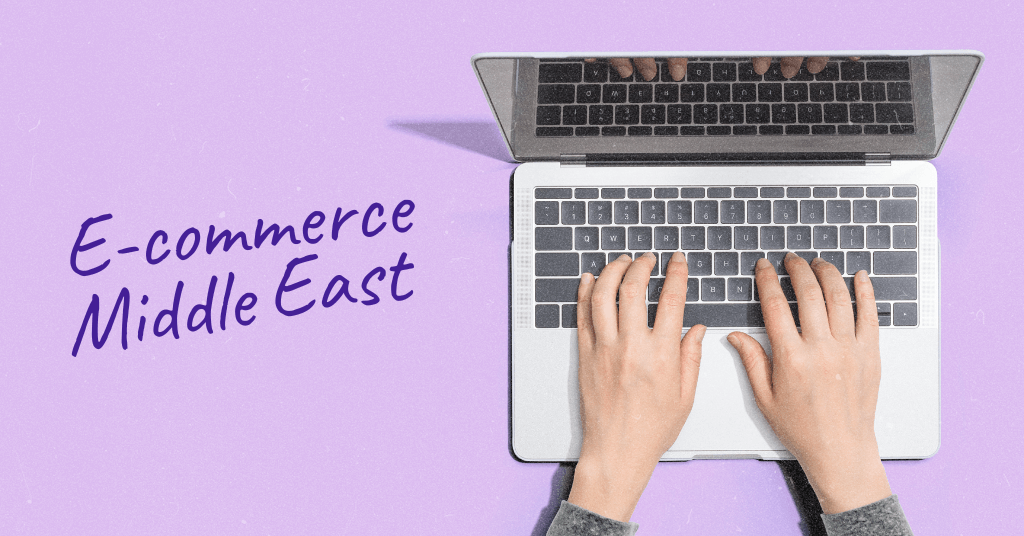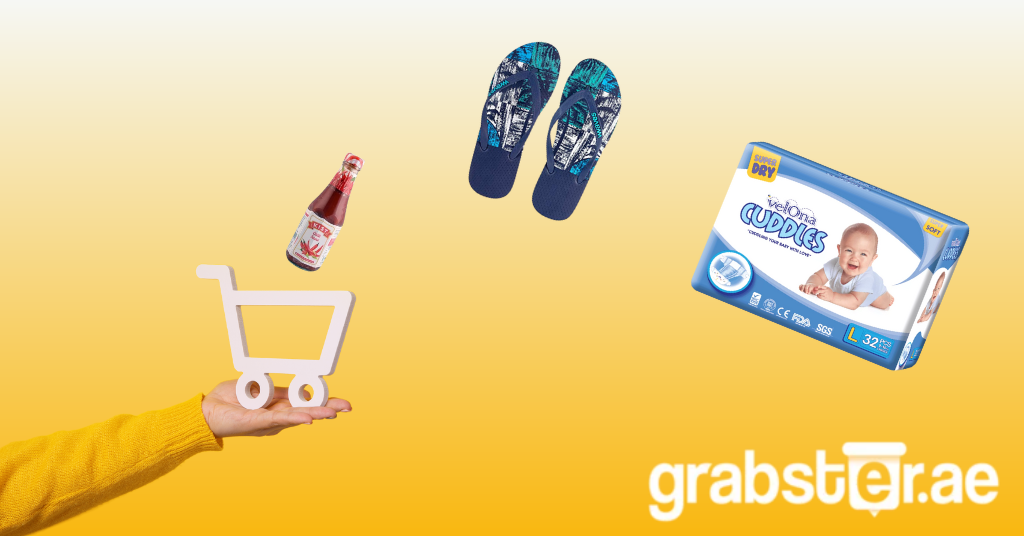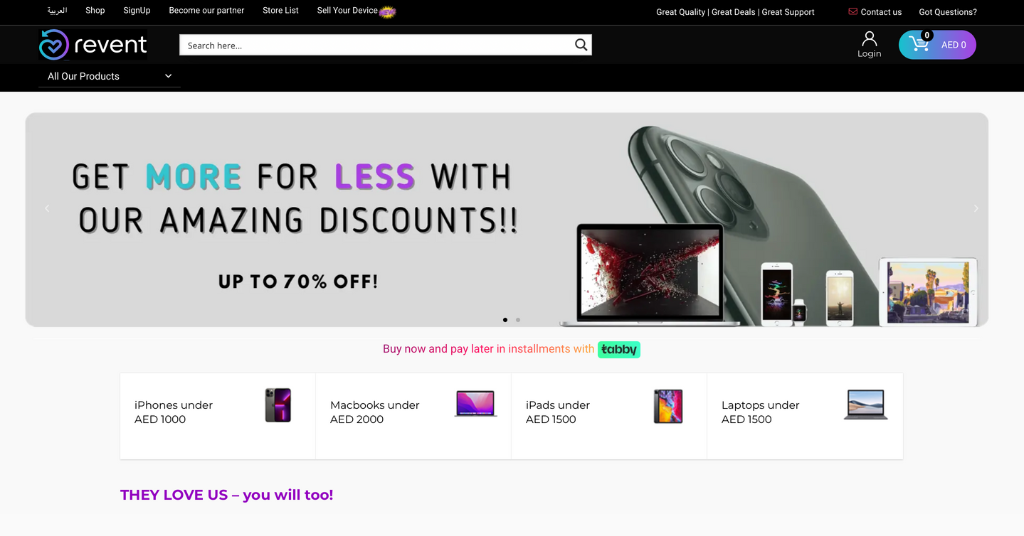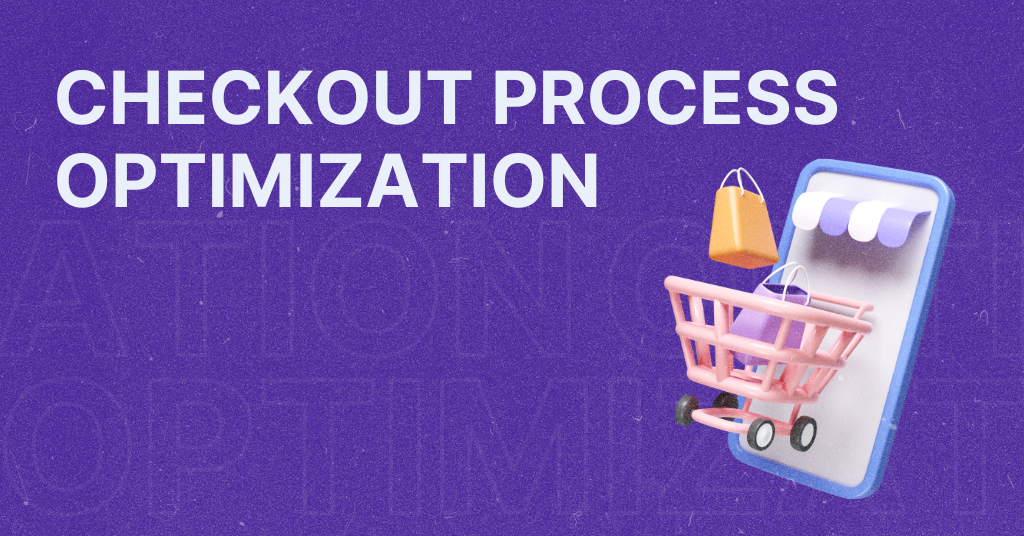
E-commerce Middle East: What is currently happening
Knock, knock, have you heard how is the convenience of online shopping transforming everything in the Middle Eastern market? Brands adapt. Customers adapt. So, now what, everyone adapts?
Let’s check out what is currently happening with e-commerce in Middle East.
The rapid growth of e-commerce in the Middle Eastern market
The e-commerce landscape in the Middle East has undergone a remarkable transformation, with numbers providing a compelling narrative of its rapid growth. In just a few years, the region has witnessed a surge in online sales.
This growth is a testament to the increasing preference for digital shopping experiences. The Middle East and North Africa region’s total e-commerce market size is expected to reach $57 billion in 2026, according to Zawya. This highlights the adoption of e-commerce caused by technological advancements, changing consumer behavior, and the widespread availability of smartphones.
E-commerce Middle East – customers found ‘guilty’
As the Middle East’s e-commerce continues to bloom, consumer behavior shapes its contours. The trend of shopping online has been fueled by the region’s tech-savvy population, which increasingly values convenience, variety, and competitive pricing.
The preference for mobile shopping, along with the rise of social commerce, reflects the region’s youthful demographic and the seamless integration of technology into everyday life.
Key findings about e-commerce in the Middle East
Getting into the e-commerce landscape of the Middle East unveils a tapestry of insights. Rapid growth, driven by the region’s youthful demographics and mobile technology adoption, is a defining mark. Market leaders are shaping a new retail narrative, while the emergence of mobile commerce underscores the convenience-centric nature of modern shopping.
Cross-border trade is expanding horizons, pushing the region’s e-commerce players into the global arena. Yet, challenges like logistical complexities and fostering consumer trust remain crucial amidst these opportunities. The Middle East’s e-commerce journey is a testament to the fusion of tradition and innovation. What a boundless potential!
UAE sets the standard for online shopping
In the heart of the Middle East’s e-commerce evolution, the UAE innovates, reshaping how people shop online. The UAE has made substantial investments in developing a robust digital infrastructure. The relatively high per capita income creates a strong demand for a wide range of products, including luxury and premium goods, driving the growth of online shopping platforms that cater to these preferences.
The UAE government has actively encouraged the development of the e-commerce sector through various initiatives and policies. These include initiatives to facilitate business registration, licensing, and digital payments. Government support has helped attract local and international businesses to establish and expand their online presence in the UAE.
A prime example of this digital transformation is Grabster, an online marketplace brand. With a broad range of products spanning from baby clothes to footwear, Grabster caters to the diverse tastes of modern shoppers. They offer a fast delivery service that aligns with today’s fast-paced lifestyle. What’s striking is that Grabster’s journey started by noticing a gap – even prominent brands lacked optimized mobile stores.

Customization for different markets
Tailoring strategies to match the distinct characteristics of various markets has emerged as a cornerstone of e-commerce success. This strategy acknowledges that a one-size-fits-all approach rarely gives the desired results. Businesses embracing customization as a system cornerstone resonate more deeply with their target audiences.
Brands such as Olivkart have demonstrated the significance of this approach. In the Middle Eastern market, Olivkart seized the opportunity by offering Ayurveda and traditional herbal products, fully optimizing its online presence. They have a dynamic adaptation to market trends. For example, they noticed that their audience is younger in Saudi Arabia, so they cater their marketing strategies to them. This level of responsiveness demonstrates how customization is more than just a strategy; it fosters meaningful connections with consumers.

The beauty of customization lies in its capacity to uncover hidden opportunities and niche markets. Olivkart is continuously incorporating new products into its offerings, which keeps the appeal fresh and the engagement high. The digital age allows for dynamic adjustments, enabling businesses to swiftly pivot to align with changing consumer sentiments.
Trust is always the number one
In e-commerce, the currency that holds the most outstanding value is trust. Without a doubt, the level of trust established between a business and its consumers can be the defining factor that determines the trajectory of its growth and reputation.
Look at Revent, a brand at the forefront of the MENA region’s circular economy. Operating in the preowned and used electronics market, Revent understands the importance of trust. In an era where skepticism runs high, Revent goes the extra mile to ensure transparency. Their examination of each device and thorough checks, coupled with an exhaustive listing of its details, give confidence to consumers.

Robust customer reviews, clear return policies, secure payment gateways, and impeccable customer service all build a reliable reputation. Brands that prioritize transparency and consistently uphold their promises stand apart in a crowded digital marketplace, just like Revent does.
E-commerce Middle East – What can we expect?
Two prominent trends are set to define its trajectory – mobile commerce and social shopping. The region’s high mobile penetration paves the way for mobile commerce to flourish, enabling consumers to navigate various products and purchase on the go. Mobile commerce has many benefits for shop owners, too.
Simultaneously, social shopping is gaining traction, with social media platforms doubling as virtual marketplaces. This fusion of social interaction and shopping convenience enhances consumer engagement and decision-making. Accepting these trends, the e-commerce Middle East scene is poised to offer a dynamic and integrated shopping experience that caters to modern consumers’ preferences and habits.
Let’s book a 30-min mobile strategy session and give your shop a boost.
Let’s book a 30-min mobile strategy session and give your shop a boost.


